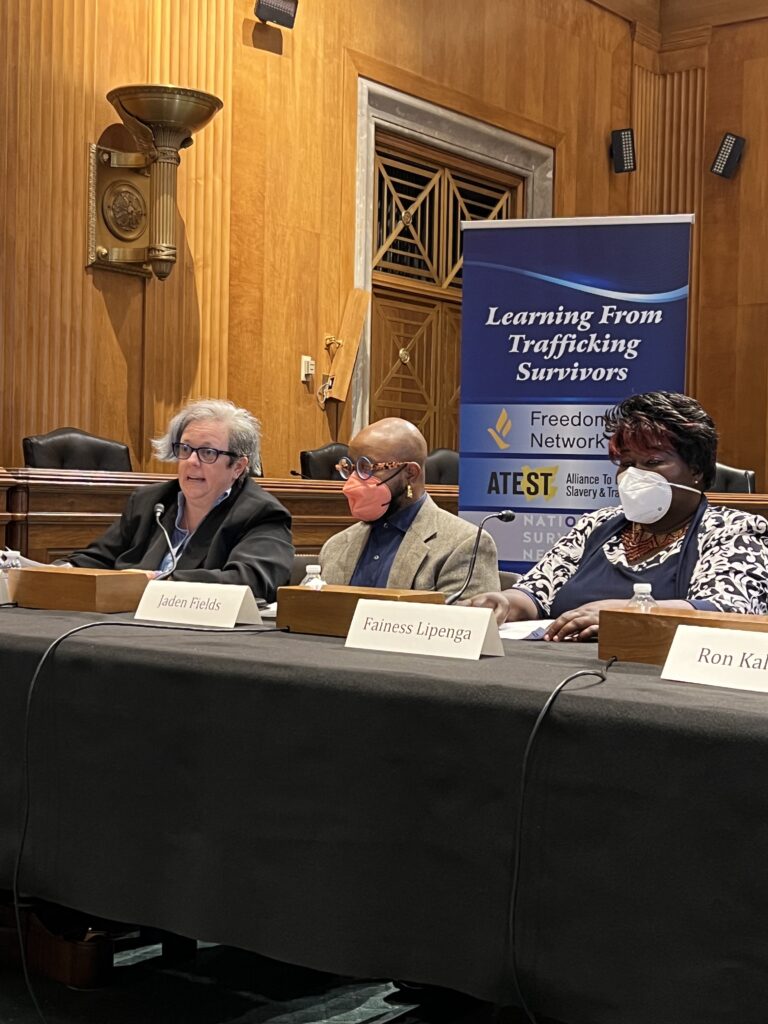Historic Capitol Hill Briefing by Experts with Lived Experience Held as Congress Enters Critical Moment to Address Trafficking
With a surge in public interest from a summer movie about international child sex trafficking and recent news reports of child labor abuses at workplaces in the United States, Congress is looking to enact new legislation to address human trafficking and forced labor. To encourage Congress to resist rushing new and untested methods into legislation this fall, Freedom Network USA, the National Survivor Network, and the Alliance to End Slavery and Trafficking co-hosted a special congressional briefing on September 14, 2023.
The event was the first of its kind. Instead of Washington-based activists, the event featured people with lived experience of trafficking and exploitation from California, Nebraska, Ohio, North Carolina, and the District of Columbia to highlight solutions that are informed by lived and professional experience.
Since the Trafficking Victims Protection Act created the U.S. government’s legislative framework for addressing human trafficking, survivors’ roles in the decision-making process have been limited, and largely defined externally; they have not been provided enough meaningful opportunities to lead conversations and are often told what to say and how to say it. However, survivors of human trafficking are the people most impacted by anti-trafficking legislation whose collective wisdom should shape the approaches Congress chooses to pursue.
A panel of six experts with lived experience covered a wide range of issues that directly impact survivors every day in the U.S. and abroad. Below is a short summary of each panelist’s remarks.
Chris Ash, Survivor Leadership Program Manager, National Survivor Network – CAST

Chris Ash began by encouraging attendees to rethink how they view survivors. They said, “If you have a distinction in your mind between survivors of trafficking and the professionals who inform your work, I’d like to invite you to wipe it away, because many of us are both, and fully both.” Ash explained how many survivors’ journeys are not defined by a single moment of “escape,” and there is often not necessarily one tidy story of someone’s trafficking experience apart from their other experiences. Many go through a slow, exhausting climb out of the darkness. This means the services survivors need are long-term, individualized, and always voluntary. They also shared that primary prevention, the transformation of the conditions that allow trafficking to happen in the first place, is crucial. For many survivors, these conditions are prior abuse, poverty, inaccessible healthcare, inadequate or unaffordable education, community discrimination, and families crushed under the weight of structural oppression. Ash ended by reminding the attendees that all policy decisions have people they help and people they harm, so we can’t rush to pass surface-level laws that cause harm and instead should dig deeper to look at solutions that help ALL survivors.
